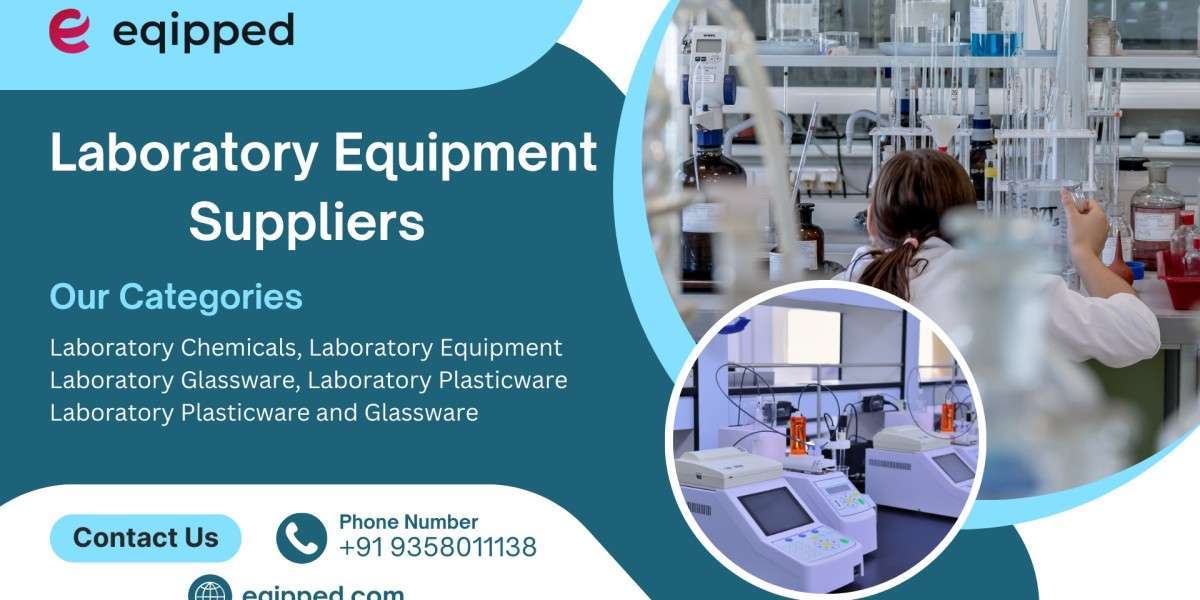The laboratory equipment wholesale industry has long been seen as a traditional, relationship-driven business. For decades, laboratory equipment wholesalers operated through physical showrooms, paper catalogs, and manual order processing. But in 2025, this old-school model is rapidly evolving into a digital-first, technology-powered ecosystem, driven by smart sourcing strategies, data analytics, and e-commerce innovation.
If you are in the business of wholesaling laboratory equipment, this isn’t just a passing trend — it is a complete market disruption that can redefine how you grow your business, reach customers, and scale operations. Here is how the smart sourcing revolution and digital transformation are reshaping the laboratory equipment wholesale landscape.
The Traditional Laboratory Equipment Wholesale Model Is Changing — And Fast
Historically, wholesale laboratory equipment businesses relied heavily on in-person relationships with suppliers and customers, bulk purchase deals, and paper-based supply chains. Wholesalers maintained inventories of essential laboratory instruments like autoclaves, microscopes, centrifuges, and analytical balances, supplying them to educational institutes, hospitals, and industrial labs.
However, several challenges plagued this system:
Inventory management was complex and inefficient.
Limited market reach constrained business growth.
Lack of data-driven insights led to poor procurement decisions.
Manual order processing caused delays and errors.
Enter the digital age of laboratory equipment wholesale.
Why Digital Transformation Is the Future of Laboratory Equipment Wholesale
Smart Inventory Management Using AI and IoT
Instead of maintaining massive inventories and risking overstock or stockouts, modern wholesale businesses are implementing AI-powered inventory management systems. These systems analyze historical demand data, market trends, and lead times to automate reorder points, track laboratory equipment stock levels in real time, and suggest optimal procurement strategies.
Some advanced warehouses are even using IoT sensors on storage shelves to monitor stock levels in real time, alerting managers when laboratory equipment is running low or when storage conditions (like temperature and humidity for sensitive laboratory instruments) need adjustment.
Data-Driven Supplier Selection
The old model relied heavily on personal relationships with suppliers, sometimes at the expense of the best price or fastest delivery. Now, wholesalers use data analytics platforms that compare supplier performance based on delivery timelines, product quality, price trends, and customer reviews.
This smart sourcing approach helps wholesale businesses choose the most reliable and cost-effective suppliers of laboratory equipment, ensuring competitive pricing while maintaining product quality.
B2B E-Commerce Marketplaces for Laboratory Equipment
One of the biggest shifts happening today is the rise of online B2B marketplaces dedicated to laboratory equipment. Wholesalers are moving beyond static catalogs and phone orders to dynamic e-commerce platforms where customers such as labs, hospitals, and educational institutions can browse detailed product specifications, compare multiple brands of laboratory equipment, place bulk orders online, and even negotiate via integrated chat systems.
This not only increases visibility but also makes ordering faster, more transparent, and more convenient for buyers of laboratory equipment.
Customized Laboratory Equipment Solutions at Scale
Forward-thinking laboratory equipment wholesalers now offer tailored equipment packages for specific industries such as pharmaceutical research labs, chemical testing labs, educational institutions, and diagnostic centers.
By analyzing customer purchasing behavior and industry needs through data analytics, wholesalers can proactively offer curated solutions—for example, a complete microbiology lab setup including incubators, microscopes, autoclaves, and essential laboratory consumables—thereby increasing average order size and customer satisfaction.
Trending Technologies Laboratory Equipment Wholesalers Should Adopt
Digital twin technology allows wholesalers to create virtual models of their warehouse operations. This enables simulation of laboratory equipment inventory flows, identification of bottlenecks, and optimization of operations without any physical disruption.
Blockchain technology is gaining attention for supply chain transparency. Implementing blockchain-based ledgers helps wholesalers provide transparent records of laboratory equipment sourcing, shipment history, and quality certifications. This builds trust with institutional buyers.
Predictive analytics for demand forecasting is another key technology. By leveraging historical data and market trends, predictive models help wholesalers anticipate spikes in demand for laboratory equipment—such as during a pandemic when diagnostic labs need more PCR machines—and adjust procurement strategies in advance.
The Competitive Edge: Why Smarter Laboratory Equipment Wholesaling Wins
Faster delivery and improved customer satisfaction result from real-time stock monitoring combined with automated reorder strategies, reducing laboratory equipment delivery lead times drastically.
Higher profit margins are achieved as smarter supplier negotiations and demand forecasting cut unnecessary procurement costs and reduce overstock wastage of laboratory equipment.
Better customer experience emerges as online platforms with detailed product descriptions, reviews, and instant order processing create a seamless customer journey, leading to higher retention for laboratory equipment buyers.
Scalability becomes easier as digital platforms grow, allowing for expanded laboratory equipment catalogs, automated customer support, and integration of third-party logistics services without significant additional investment.
Real-World Example: How One Laboratory Equipment Wholesaler Increased Revenue by 40 Percent in 6 Months
Consider the case of LabPro Distributors, a mid-sized laboratory equipment wholesaler based in India. After digitizing their operations, implementing an AI-based inventory system, and launching a B2B e-commerce platform, LabPro achieved significant success:
Inventory holding costs dropped by 25 percent.
Order processing time improved by 50 percent.
The company gained access to a pan-India customer base.
Bulk order sizes increased by offering curated laboratory equipment solutions.
Within just six months, LabPro boosted its revenue by 40 percent, demonstrating the real power of digital transformation in the wholesale laboratory equipment industry.
Challenges in the Path of Laboratory Equipment Digital Transformation
While the benefits are significant, the transition to smart wholesaling does come with challenges:
The initial cost of setting up digital infrastructure for laboratory equipment can be high, especially for smaller businesses.
Data security is critical, especially when sensitive laboratory equipment specifications or pricing details are involved. Wholesalers must ensure strong cybersecurity measures.
Managing technological complexity requires skilled personnel who can handle integrated systems and data analytics tools.
Conclusion: The Future of Laboratory Equipment Wholesale Is Digital
The wholesale market for laboratory equipment is rapidly shifting from manual, relationship-based operations to digital, data-driven ecosystems. The integration of AI, IoT, predictive analytics, and e-commerce platforms is redefining the way wholesalers operate, enabling them to deliver faster service, smarter solutions, and better customer experiences.
For laboratory equipment wholesalers who embrace this change, the future is bright. The key to staying ahead in the competitive market lies in adopting technologies that improve efficiency, reduce costs, and scale operations effectively. The era of smart sourcing and digital wholesaling is here, and it offers immense opportunities for businesses that are ready to evolve.
The question remains: Are you prepared to lead the next wave of innovation in laboratory equipment wholesale?








